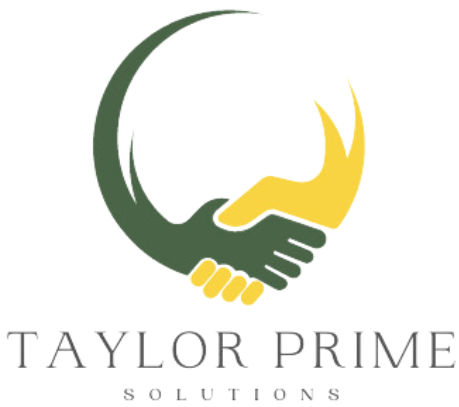Understanding the “No Surprises Act” in Maryland: Key Insights, Practical Tips, and Industry Perspectives
The “No Surprises Act” has emerged as a significant piece of legislation impacting patients and healthcare providers alike. In Maryland, where healthcare services are diverse and patient populations are continuously growing, the effects of this new law are particularly notable.

By safeguarding patients from unexpected out-of-network medical bills, the “No Surprises Act” sets a new standard for transparency and fairness. In this blog post, we’ll break down the key elements of the law, provide practical guidance for compliance, analyze industry trends, share expert opinions, and highlight resources for Maryland healthcare providers looking to align their medical billing practices with the requirements of the “No Surprises Act.”
What is the “No Surprises Act” and How Does It Affect Maryland Healthcare Providers?
The “No Surprises Act,” effective as of January 2022, seeks to eliminate surprise medical bills that patients incur when they unknowingly receive out-of-network care. Traditionally, a patient receiving emergency care at an out-of-network facility—often due to urgent, non-elective procedures—might be hit with significantly higher costs after the fact. The “No Surprises Act” changes this landscape by limiting patients’ out-of-pocket expenses and establishing a framework for resolving billing disputes between providers and insurers.
For Maryland healthcare providers, the legislation’s impact is multifaceted. Not only must providers ensure they are billing patients in compliance with federal regulations, but they must also reevaluate their revenue cycle management to adjust for potential changes in reimbursement. By following the “No Surprises Act” guidelines, Maryland providers can enhance patient trust, reduce billing-related disputes, and ultimately contribute to a more balanced and transparent healthcare system.
Practical Steps for Maryland Providers to Comply with the “No Surprises Act”
Compliance with the “No Surprises Act” in Maryland begins with thorough preparation and systematic changes to internal billing processes. Here are several steps providers can take:
- Review and Update Billing Protocols:
Evaluate your current practices, making sure that out-of-network and emergency claims align with the law’s stipulations.
- Enhance Patient Communication:
Clear, upfront cost estimates and transparent explanations of patient financial responsibilities are critical. By implementing user-friendly digital communication platforms, Maryland providers can keep patients informed, mitigate confusion, and reduce billing disputes.
- Leverage Medical Billing Software:
Utilizing software that incorporates the “No Surprises Act” guidelines can simplify the coding, claim submission, and appeals processes. Automation ensures more accurate billing and better regulatory compliance.
- Train Your Team:
Conduct in-depth training sessions for billing staff to understand the law’s requirements, dispute resolution processes, and best practices for patient financial education.
Industry Trends and the “No Surprises Act”: What Maryland Providers Need to Know
The “No Surprises Act” is more than just a new rule—it’s part of a growing shift towards price transparency and patient-centered care. Several industry trends are influencing how Maryland providers approach billing and coding:
- Increased Regulatory Scrutiny:
As federal and state governments continue to spotlight surprise billing issues, Maryland providers can expect ongoing audits and reviews. Staying ahead of compliance requirements is crucial.
- Integration of Value-Based Care Models:
With the emphasis on outcomes and patient satisfaction, providers who adhere to the “No Surprises Act” naturally align with broader quality metrics. Lower billing disputes often correlate with better patient experiences, which can influence reimbursement models tied to patient satisfaction and value.
- Adoption of Advanced Billing Technologies:
Cutting-edge billing platforms integrate insurance verification, cost estimation, and coding tools that reduce errors and streamline compliance. This trend will likely accelerate as more Maryland practices embrace digital transformation.
Case Studies: Maryland Practices Successfully Implementing the “No Surprises Act”
To better understand the real-world implications of the “No Surprises Act,” let’s examine two Maryland-based examples:
- Urban Medical Center in Baltimore:
Facing frequent out-of-network billing complications, this multi-specialty clinic overhauled its revenue cycle management. By integrating an automated billing system that flags potential surprise bills before claims submission, the clinic reduced disputes by 30%. Patients expressed appreciation for clearer upfront estimates, and staff found fewer claim denials.
- Suburban Primary Care Practice in Montgomery County:
In a smaller practice setting, leadership introduced standardized cost estimate forms, provided patients with transparent pricing before procedures, and offered follow-up financial counseling. By doing so, they not only complied with the “No Surprises Act” but also improved patient loyalty. This practice saw a 15% increase in positive patient feedback on billing-related surveys.
These Maryland case studies underscore the law’s potential to enhance trust, streamline workflows, and ultimately improve the patient-provider relationship.
Common Challenges Under the “No Surprises Act” and How Maryland Providers Can Overcome Them
Implementing the “No Surprises Act” is not without hurdles. Maryland healthcare providers frequently encounter issues such as complex insurance negotiations and limited internal resources. Here are some common pain points and solutions:
- Complex Out-of-Network Negotiations:
Solution: Partner with a medical billing service that specializes in out-of-network claim resolution. Expert negotiators can help you reach fair settlements more efficiently.
- Inadequate Patient Education:
Solution: Develop easy-to-understand educational materials—printed brochures, website FAQs, and short explainer videos—so patients know what to expect from their billing process.
- Time-Intensive Manual Processes:
Solution: Invest in automation. Billing software tailored for Maryland’s regulatory environment can handle coding, claims submission, and appeals processes with minimal human intervention.
By proactively addressing these challenges, Maryland providers can ensure compliance while maintaining operational efficiency.
Expert Opinions: Maryland Healthcare Leaders Weigh in on the “No Surprises Act”
To gain a well-rounded perspective, we reached out to Maryland healthcare leaders for their opinions on the “No Surprises Act”:
- Dr. Aisha Thompson, Director of Patient Services at a Baltimore Hospital:
“Implementing the ‘No Surprises Act’ has been challenging, but ultimately beneficial. Patients feel more secure knowing they won’t be caught off-guard by unexpected bills. It’s improved trust and communication between patients and our billing team.”
- Michael Jameson, CEO of a Maryland Medical Billing Firm:
“From a billing perspective, the key to success is early preparation. Those who integrate robust billing systems and train their staff thoroughly find the transition smoother. We’ve seen improved compliance rates among providers who actively embrace the law rather than react to it.”
These insights confirm that the “No Surprises Act” can serve as a catalyst for industry-wide improvement, encouraging providers to focus on patient education, transparency, and streamlined billing practices.
Essential Resources for Maryland Providers
To help providers stay informed and compliant, consider the following resources:
- Maryland Department of Health Website:
Regularly updated with state-specific guidance and FAQs, ensuring compliance efforts are localized and accurate.
- Federal CMS “No Surprises Act” Guidance:
The Centers for Medicare & Medicaid Services (CMS) provides detailed fact sheets, regulations, and implementation updates.
- Professional Associations and Webinars:
Organizations like the Maryland State Medical Society offer workshops, webinars, and newsletters to keep providers informed about the latest billing and regulatory trends.
- Consulting and Outsourced Billing Services:
Partnering with an experienced medical billing firm familiar with Maryland’s landscape can help practices streamline processes, resolve disputes, and minimize compliance risks.
Strengthening Patient-Provider Trust in Maryland
The “No Surprises Act” represents a milestone in promoting transparency, fairness, and patient protection within the healthcare industry. For Maryland providers, understanding and embracing this law can lead to stronger patient trust, fewer billing disputes, and more sustainable revenue cycles. By staying informed, investing in the right resources, and striving for clear communication, Maryland’s healthcare community can turn the “No Surprises Act” from a regulatory hurdle into an opportunity for long-term growth and improved patient satisfaction.
Ultimately, complying with the “No Surprises Act” is about more than just meeting legal requirements—it’s about forging a new path forward that prioritizes patient well-being and sets a higher standard for ethical, transparent, and patient-centered care in Maryland.
Visit their website if you need more Information regarding the No Surprise Act
Taylor Prime Solutions offers Medical Billing Services for Maryland Providers, Contact here for more information!

